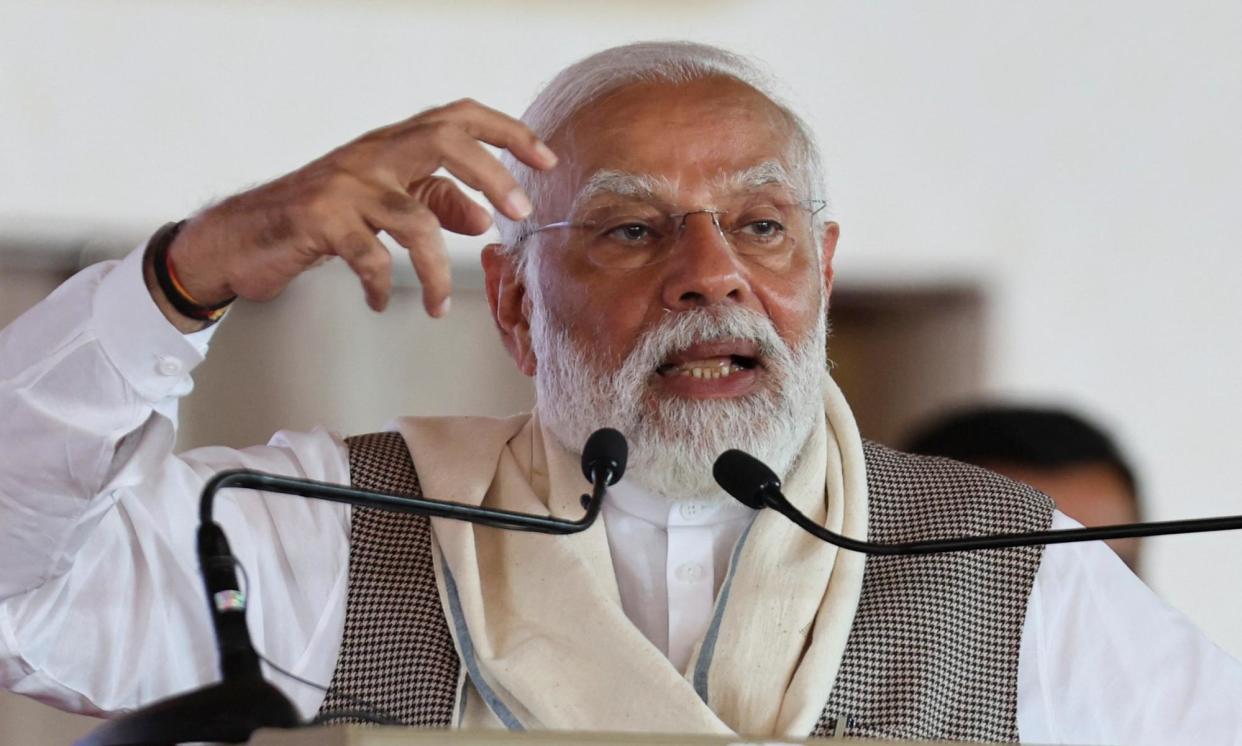UK and India put free trade deal talks on ice until later this year

The UK and India have closed their 14th round of trade negotiations without reaching a deal and will put the discussions on ice until later this year.
The UK government ended the latest round of talks on Friday night after two weeks of intensive negotiations with Indian officials failed to bear fruit.
Ministers had been hopeful of finalising a long-coveted free trade agreement (FTA) with India before its election campaign begins. A delegation led by a senior UK government official flew to Delhi at the start of last week to try to seal the deal.
India’s electoral commission is expected to announce the date of the election on Saturday. Formal talks over an FTA will not take place during India’s pre-election period.
Officials expect to return to the negotiating table in May or June in the hope of reaching an agreement before the UK general election, assuming this does not take place until the autumn or winter.
Rishi Sunak spoke to his Indian counterpart, Narendra Modi, on Tuesday. One UK government source said he had hoped to get the FTA over the line during that call.
People close to the talks said the two sides had come very close to finalising a deal, but UK officials said on Friday that India had not moved enough on services and investment.
A key request on the UK side is access for the British services sector – which makes up 80% of the economy – to the Indian market. India has a population of 1.4 billion and its economy is predicted to become the world’s third largest by 2050.
Sunak’s spokesperson said that in his call with Modi, “the prime minister reiterated the importance of reaching an ambitious outcome on goods and services”.
A spokesperson for the Department for Business and Trade said: “The UK and India are continuing to work towards an ambitious trade deal. Whilst we don’t comment on the details of live negotiations, we are clear that we will only sign a deal that is fair, balanced and ultimately in the best interests of the British people and the economy.”
India is a notoriously tough negotiator on trade. Its government signed a £79bn agreement with the European Free Trade Association – a bloc made up of Norway, Switzerland, Iceland and Liechtenstein – this week, 16 years after talks began.
The UK and India launched trade negotiations in January 2022 while Boris Johnson was prime minister. Johnson said he wanted the deal to be “done by Diwali” in October 2022 but failed to reach agreement on tricky areas such as visa arrangements.
Visas are particularly contentious for the Conservative government. Suella Braverman, the former home secretary, set back the negotiations last autumn by saying she had reservations about a deal and that Indian migrants made up the largest number of visa overstayers in the UK.
As part of the negotiations the UK has asked for lower tariffs on goods such as cars and whisky, and increased access for British lawyers and financial services companies. In return, India has asked for faster and easier processing arrangements for its companies to send workers to the UK.
One sticking point in recent months has been Delhi’s concern that Indians working temporarily in the UK on business visas have to pay national insurance despite not being eligible for UK pensions or social security benefits.
Modi tweeted on Tuesday that he and Sunak had “reaffirmed our commitment to further strengthen the bilateral comprehensive strategic partnership and work for early conclusion of a mutually beneficial free trade agreement”.
Sunak’s spokesperson said that the leaders “agreed to remain in close contact and looked forward to further progress on trade talks”.


